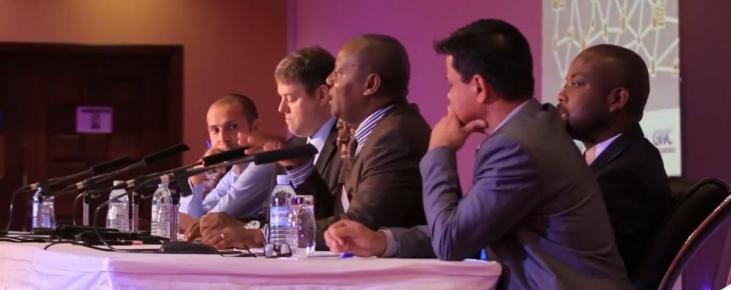Joined forces at the Kampala WASH Symposium identify what stands in the way of sustainability.
Published on: 28/07/2016

The Kampala Water, Sanitation and Hygiene (WASH) Symposium brought together the 21st Sustainable Sanitation Alliance (SuSanA) Meeting and the 6th WASH Sustainability Forum. This was the first WASH Sustainability Forum to be held on the African continent.
The symposium was hosted in Kampala, Uganda, from 20-23 June 2016, by Uganda's Ministry of Water and Environment, in partnership with UNICEF, GIZ, IRC, Global Water Challenge, Aguaconsult and Eclipse.
For the first time the organisers of the WASH Sustainability Forum joined forces with the SuSanA Secretariat to combine the WASH Sustainability Forum and SuSanA Meeting. The event built on 8 years of work by SuSanA partners on sustainability in sanitation and 5 years of the global WASH Sustainability Forum conversations aimed at improving the sustainability of services.
Recognising the critical need for WASH projects to engage the broader system beyond a single project, with governments at the core of that system, the focus of the symposium was 'From Projects to Services: WASH Sustainability through Whole System Approaches'.
The Symposium attracted about 250 participants from 26 countries - experts from governments, donors, development partners, civil society, and academic institutions around the world converged. Discussions focused on: methods for evaluating interventions; the enabling environment (political economy); engaging systems to ensure that services last over time; and how WASH stakeholders can and should work together within complex service delivery systems.
Working together also means sharing knowledge. Zambia suffers from recurring cholera outbreaks, the most recent one hit the country in February this year. Bernard Miti (Country Director at the Zambia WASHE Advocacy Network (ZWAN)) said he attended the event to learn best practices from other organisations about sludge management to help prevent further cholera outbreaks. "This symposium has come at the right time", Miti mentioned.
Jude Byansi (Water and Sanitation Supervisor at the Kampala City Council Authority (KCCA)) also joined the event with a clear goal. Byansi saw the symposium as a chance to learn more about how the local government can collaborate with national government and non-governmental partners. Byansi explained that KCCA is currently both providing and regulating water and sanitation services. Attending the symposium enabled him to gain more knowledge about how KCCA can delegate service provision to the private sector, so it can focus on regulation.
An important aim of the event was to identify problems and gaps in current service delivery systems. The following issues were mentioned:
At first glance, it would appear that technical issues stand in the way of sustainable service delivery. But when you take a closer look, institutional and financial issues are the core problem. The participants also aimed to identify all the actors and their roles within the service delivery chain. This is the first step towards ensuring that all players take responsibility for their roles.
Furthermore, solutions at different levels were discussed. First of all, performance and sanitation indicators need to be included in governments' monitoring systems. Second, bottom-up approaches are needed for data collection to reflect real community needs.
Patrick Moriarty (CEO of IRC) summarised these findings by advocating that we should determine how all these systems and actors work together; build the national systems; and focus on the bigger picture. A report of the symposium is being prepared and will be shared as soon as it is ready.
"We need to make realistic plans and promises and keep ourselves accountable for those plans and promises."
- Alana Potter
(Africa Regional Manager at IRC)